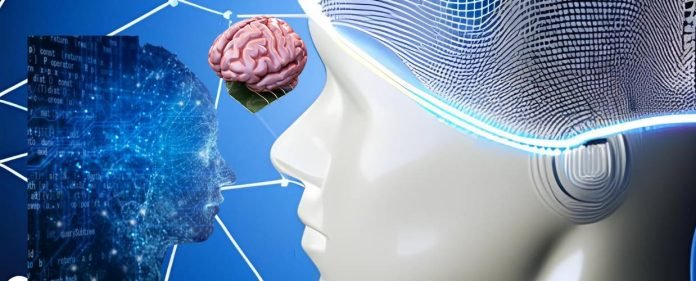In the ever-evolving landscape of scientific innovation, neurotechnology is a beacon of promise at the intersection of neuroscience, engineering, and computing. This comprehensive exploration delves into the realm of neurotechnology, uncovering its origins, detailing its diverse applications, discussing ethical considerations, and envisioning the profound impact it holds on humanity’s future.
Origins and Foundations of Neurotechnology
At its core, neurotechnology aims to decipher the intricacies of the human brain and forge connections between biological neural systems and artificial technologies. The roots of this field trace back to early attempts to understand brain function and control through methods like electroencephalography (EEG). Over time, neurotechnology has evolved into a multidisciplinary endeavor that merges neuroscience, engineering, data science, and robotics.
Diverse Applications Across Fields
Neurotechnology’s impact spans a myriad of fields, each harnessing its potential to address complex challenges and enhance human capabilities.
Medicine and Rehabilitation
In medicine, neurotechnology has paved the way for groundbreaking advancements. Brain-computer interfaces (BCIs) empower individuals with motor impairments to communicate and interact with their environment using their thoughts alone. These interfaces hold transformative potential for spinal cord injury patients and individuals with neurodegenerative disorders.
Cognitive Enhancement
Neurotechnology also offers the potential for cognitive enhancement and augmentation. Transcranial Direct Current Stimulation (tDCS) is a non-invasive technique that modulates brain activity, enhancing learning, memory, and decision-making processes. Such techniques could have implications for education, skill acquisition, and cognitive therapy.
Neuroprosthetics and Robotics
The fusion of neurotechnology and robotics has yielded neuroprosthetic devices that restore lost sensory and motor functions. Prosthetic limbs controlled directly by neural signals allow amputees to regain dexterity and mobility, transcending the limitations of traditional prosthetics.
Brain-Machine Interfaces (BMIs)
The realm of brain-machine interfaces delves into the realm of extracting information from the brain to control external devices. This technology offers possibilities for medical applications and holds potential in fields such as gaming, communication, and even controlling external machines and vehicles.
Ethical Considerations and Future Possibilities
With the promise of neurotechnology comes a host of ethical and societal considerations.
Privacy and Security
As neurotechnologies progress, the potential to decode an individual’s thoughts and intentions raises concerns about privacy and data security. Safeguarding the integrity of neural data becomes paramount to prevent unauthorized access and potential misuse.
Autonomy and Consent
The boundary between human autonomy and external control blurs with the development of neurotechnologies that can influence thoughts and behaviors. Striking a balance between personal agency and technological influence requires careful consideration.
Social Equity
Ensuring equitable access to neurotechnological advancements is essential to prevent a divide between those who can afford enhancement and those who cannot. Social and economic disparities must be addressed to ensure that everyone benefits from these innovations.
Regulatory Frameworks
As neurotechnology advances, regulatory frameworks must be established to govern its development and application. Balancing innovation with safety and ethical considerations requires collaboration between researchers, policymakers, and ethicists.
Conclusion: Forging a New Frontier
Neurotechnology embodies humanity’s quest to explore the brain’s inner workings and harness its potential to improve lives. As this interdisciplinary field continues to advance, it holds the potential to bridge gaps in medical care, enhance human capabilities, and revolutionize the way we interact with machines. However, with great power comes great responsibility, and navigating the ethical complexities surrounding neurotechnology will be crucial to ensure its responsible and beneficial integration into society.
The future of neurotechnology promises a new frontier of possibilities, where the boundaries between mind and machine are blurred, and the realm of human potential expands beyond what was once imaginable.



